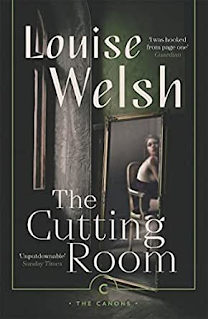James Purdy’s second novel, The Nephew, written in 1961, was controversial
in its day and – sadly – the reason for that controversy still affects a lot of
fiction today. It tells the story of a (possible, never explicitly proven)
homosexual love affair between a young man, Cliff, who subsequently goes to war
in Korea and is posted missing in action, and another young man from his home
town, called Vernon. What makes the novel so powerful is that this is not its
principal theme; indeed, it is only late in the novel that this plotline
emerges at all. There is no didacticism here; the homosexuality is not being
written about as an “issue” with the characters only existing because they are
homosexual and the novel only existing for the reason of debating that. Fifty
plus years later, too many writers still cannot routinely create characters who
just happen to be gay (or black, or Muslim), without this being a crucial
element of the plot. It is the same problem Percival Everett bemoans when he
says he wishes to be read as a writer, not as an African-American.
All very interesting, I’m sure you’re saying, but what does
this have to do with Louise Welsh’s first novel, The Cutting Room?
The reason is that the novel’s protagonist, the wonderfully
dissolute Rilke, is a gay man who, in the course of the novel, has a few sexual
encounters. As with Purdy, however, Welsh doesn’t use this as a way of
exploring gay sexuality: Rilke just happens to be a gay man. He is a beautifully
created character, rich and complex, highly believable, as are the other main
characters in the novel, and they all combine to provide a rich evocation of
the seedier side of Glasgow living. The sense of place Welsh creates is
profound, and you really feel you are immersed in this milieu.
Rilke is an auctioneer who is called by Miss McKindless to clear
the property of her recently deceased brother. She wants this done quickly, and
she advises Rilke that he is likely to find some unsavoury material. This, she
wants destroyed. Rilke finds in an attic a complete library of pornographic
material which he realises contains very rare and valuable works. As he looks
through it he discovers some photographs of a young woman being tortured and
killed. They are so realistic Rilke wonders whether they might be real, and he
begins to investigate.
This pitches him into a shady Glasgow community of
pornographers and fetishists and bent police. The novel zips along at a
tremendous pace and we’re drawn willingly into Rilke’s world, as curious as him
to find out the truth behind these terrible photographs. That truth, when it
comes, is shocking.
I first read this when it came out in 2002, and Louise Welsh
has just published, twenty years on, the sequel, The Second Cut. I’ve
been looking forward to that but felt I needed to re-read The Cutting Room
before I did. I’m glad I did. It was fun to make Rilke’s acquaintance once
more, and I’m even more excited now to read The Second Cut.
